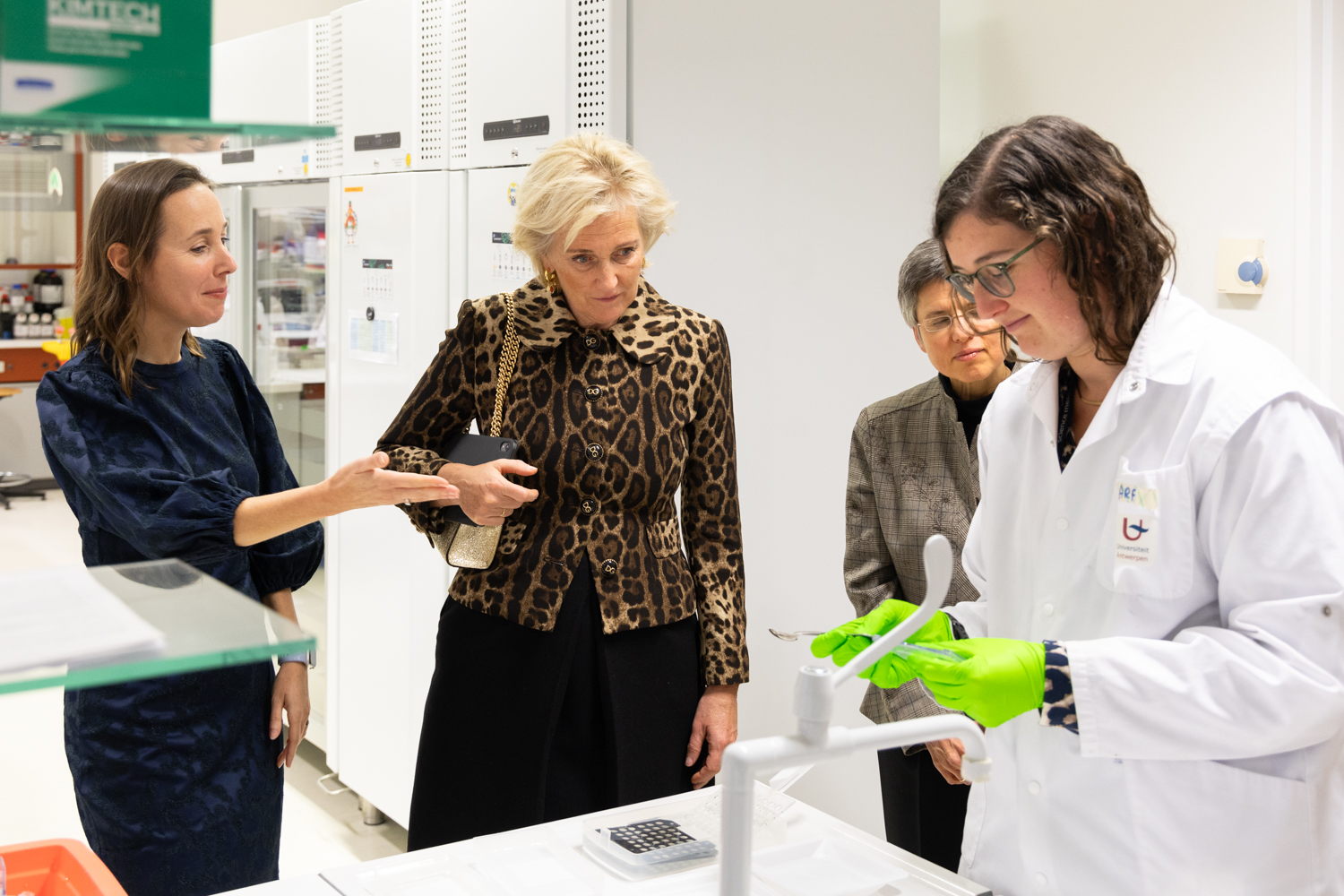Princess Astrid visits the VIB-UAntwerp Center for Molecular Neurology
On Friday, Her Royal Highness Princess Astrid visited the lab of Prof. Rosa Rademakers at the VIB-UAntwerpen Center for Molecular Neurology. In 2021, Rademakers was awarded the Generet Prize for her research on rare forms of dementia. This prize, managed by the King Baudouin Foundation, carries a grant of 1 million euros, making it the most prestigious award for rare disease research in Belgium and Europe.
Rosa Rademakers focuses on frontotemporal dementia, which affects brain cells at the front (frontal) and side (temporal) regions of the brain. This type of dementia can strike people relatively early in life, often in their 40s or 50s. Unfortunately, it is incurable, and patients typically succumb within ten years of diagnosis.
Unlike Alzheimer's, individuals with frontotemporal dementia don't primarily experience memory problems. Instead, they undergo significant changes in behavior and personality, appearing unrestrained, with less socially adapted behavior, and sometimes even aggression, as explained by Rosa Rademakers.
Generet Prize
The Generet Fund, managed by the King Baudouin Foundation, aims to establish a globally recognized research hub for rare diseases in Belgium. It annually awards a 1-million-euro prize to a top researcher in Belgium conducting research on rare diseases. Prof. Dr. Rosa Rademakers is the first female laureate of the Generet Prize and also the youngest. The jury praised her prestigious international career and high ambitions to enhance the lives of dementia patients through her research.
Prof. Rademakers and her team have identified crucial disease genes and unraveled molecular disease pathways. Initially focused on two forms of frontotemporal dementia, the 1-million-euro prize from the Generet Prize allowed Rademakers to study a third, more rare form, where the FUS protein accumulates in the brain.

Distinguished visitor
In a crowning moment, Prof. Rademakers and her team welcomed Princess Astrid to the VIB-UAntwerpen Center for Molecular Neurology. The princess engaged in discussions with the center's researchers and received a personal tour of Prof. Rademakers' lab.
Prof. Rademakers expressed gratitude for the visit, stating, "We are honored by Princess Astrid's visit and her interest in our research. It is a significant recognition for our entire team and extra motivation for everyone working daily to understand this terrible disease. Thanks to the Generet Fund, we have significantly expanded our studies and are one step closer to a potential breakthrough."
Levers for diagnosis and therapy
The additional resources Prof. Rademakers received for her research are crucial to intensify the fight against this condition.
"Unraveling the molecular background of different forms of frontotemporal dementia not only provides insight into underlying disease mechanisms," explained Rosa Rademakers. "It also serves as a lever for better diagnosis and monitoring, and ultimately, for a possible therapy."
Joran Lauwers
About the University of Antwerp
The University of Antwerp is a research university where pioneering, innovative research is conducted at an international level. Research and education are closely linked. Educational innovation is a constant focus, and special care is also taken to welcome and guide each of the 20,000 students spread across our nine faculties. The University of Antwerp is not an island: we build bridges to secondary education, to industry and, by extension, to society as a whole. With over 5,000 members of staff, the University of Antwerp is one of the most important employers in Antwerp, Flanders’ largest city. More information: www.uantwerp.be.



